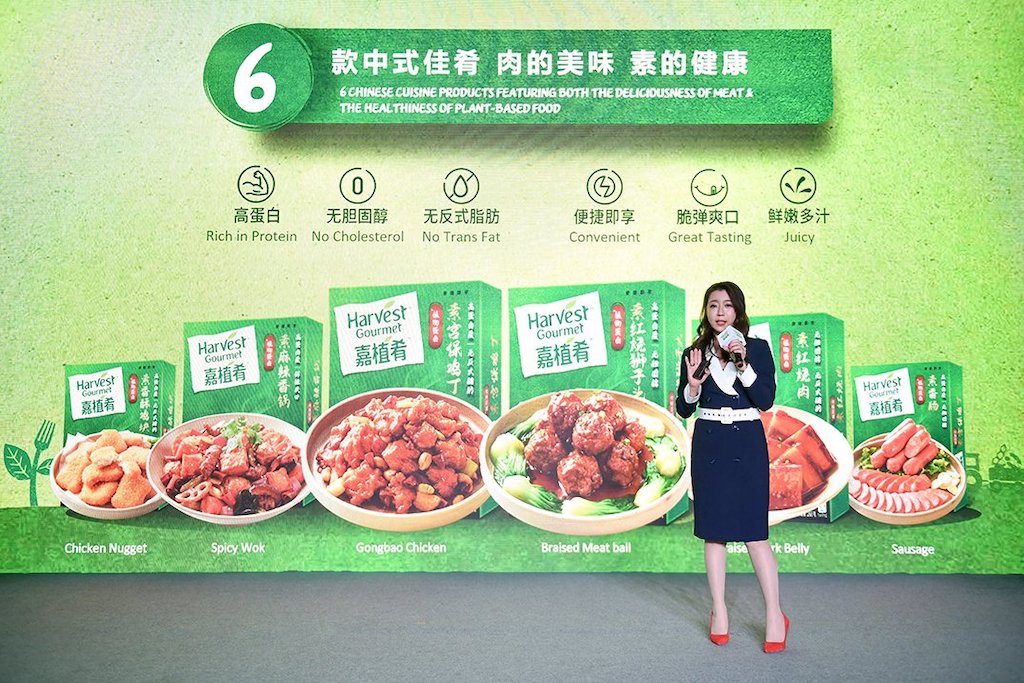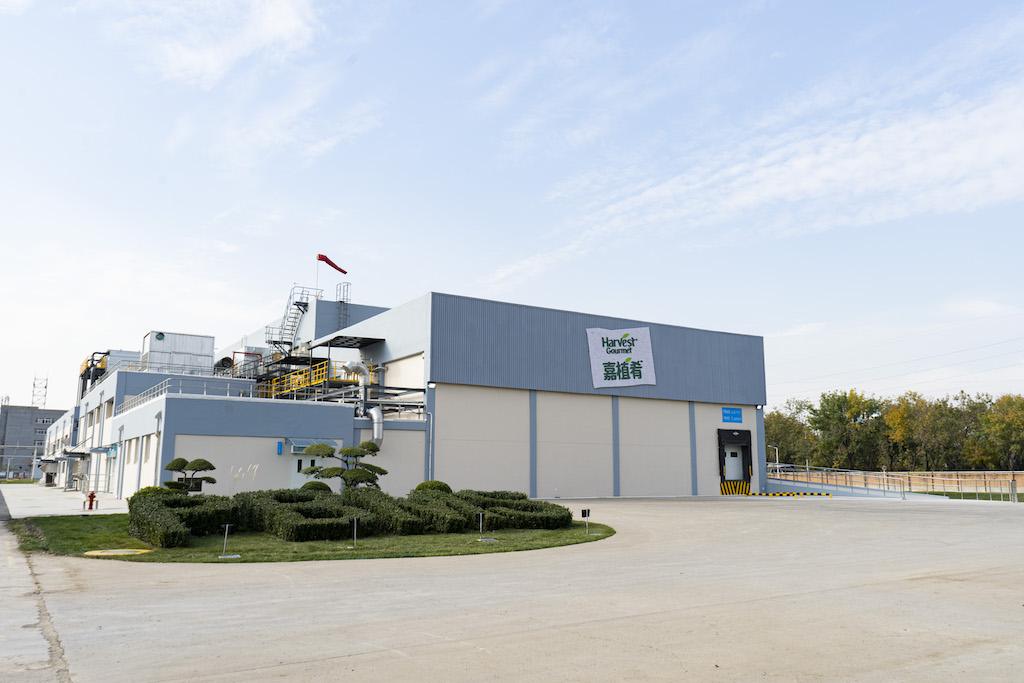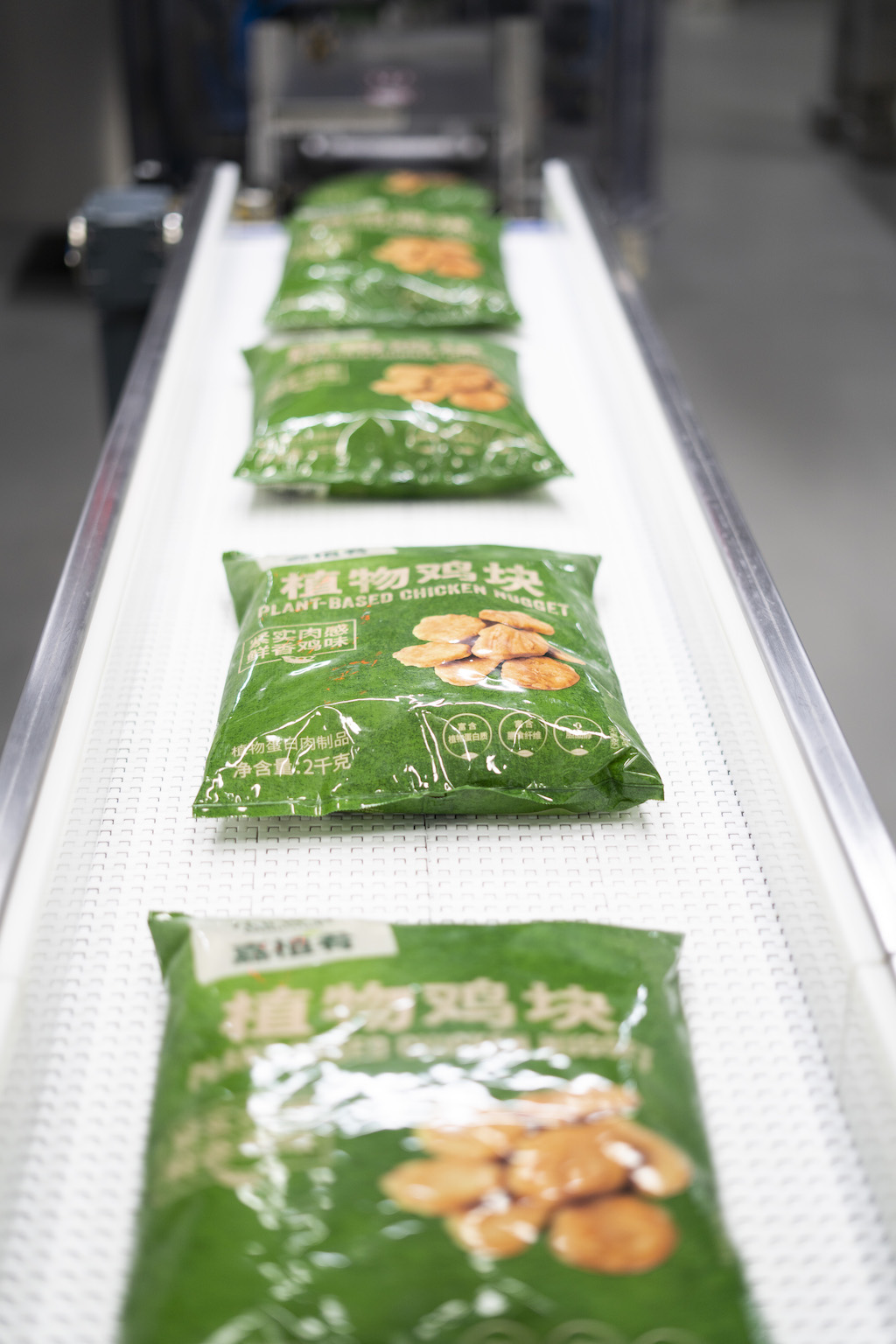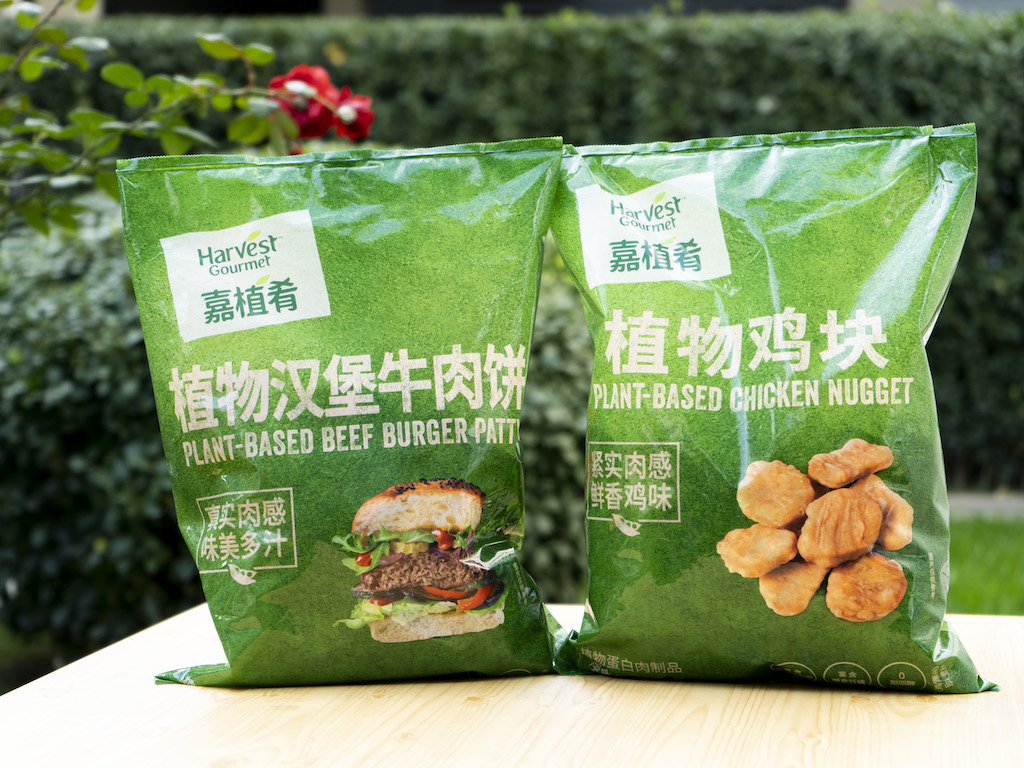4 Mins Read
Nestlé has officially launched Harvest Gourmet, its plant-based food brand for the Chinese market. The Swiss food giant also opened the doors to its Tianjin-based production site, where a portion of the facility is used to manufacture its new Harvest Gourmet branded plant-based products. It comes shortly after Nestlé put forward its climate plan for the next five years, which the firm says will be powered by plant-based innovation within its product portfolio among other sustainability projects.
On Wednesday (December 8), global food giant Nestlé debuted Harvest Gourmet, its first plant-based brand for the Chinese market. The new brand joins the corporation’s growing list of plant-based protein alternative product lines, including its European-facing Garden Gourmet brand and Sweet Earth in the U.S. market. Harvest Gourmet’s range at launch boasts 10 products in total, six of them developed for retail and four aimed at foodservice.

Consumers in China will now be able to try Harvest Gourmet’s plant-based chicken nuggets, kung pao chicken, braised meatballs, braised pork belly, sausages and spicy wok – all of which Nestlé developed to cater to the Chinese appetite and are described as a “spin on classic Chinese dishes”.
The range will be available to shoppers on the Alibaba-owned Chinese e-commerce platform Tmall, with plans to roll-out in physical stores later on in the month across Hema supermarket locations in Beijing and Shanghai.
Nestlé wants to make plant-based food part of everyone’s everyday life, which is why we’re excited to offer our delicious and nutritious products in China.
Rashid Qureshi, CEO, Nestlé Greater China Region
Within foodservice, Harvest Gourmet will offer burger patties, chicken nuggets, beef mince and pork mince, which are suitable for both Western and Asian applications. Nestlé says that it will partner with restaurants, cafés, caterers and businesses across the food industry in China to bring these products to their customers, who are now more than ever before in search for healthier, safer and sustainable alternatives to traditional meat in the wake of the coronavirus pandemic.

Globally, the Swiss multinational recorded a 40% sales growth in its plant-based category in the first half of 2020 while other product categories declined – prompting the company to state that it will aggressively roll-out more plant-based products amid the pandemic-driven demand boost.
“Nestlé wants to make plant-based food part of everyone’s everyday life, which is why we’re excited to offer our delicious and nutritious products in China,” said Rashid Qureshi, CEO of Nestlé Greater China Region (GCR). “We see China leading the trend towards a new generation of plant-based food in Asia, as people look for options that are good for them and good for the planet.”
Altug Guven, senior vice president of Nestlé Professional GCR, added that the company will pursue the foodservice avenue as a part of its strategy to attract more first-time customers. Existing research based in the U.S. has shown that the majority of first-time buyers of plant-based meat products since the pandemic plan to continue doing so for the long-term.

We see China leading the trend towards a new generation of plant-based food in Asia, as people look for options that are good for them and good for the planet.
Rashid Qureshi, CEO, Nestlé Greater China Region
The Swiss food major also inaugurated its new Tianjin-based production factory following a US$103 million investment announced in May this year. While it was widely advertised by other media outlets to be a dedicated plant-based food factory, our reporting revealed that a significant share of the capital injection would in fact be used to boost the company’s existing unsustainable dairy snack production and ramp up its pet food line.
In its most recent announcement, Nestlé said that the new facility will be “primarily” used to manufacture its plant-based food products under the Harvest Gourmet brand.
The news comes on the heels of Nestlé’s new time-bound plan to halve its emissions by 2030 and reach net-zero emissions by 2050, which it says will be driven by supporting regenerative agriculture across its supply chain, making a full transition to 100% renewable energy, and building its plant-based product range to slash its food production footprint.
All images courtesy of Nestlé.




